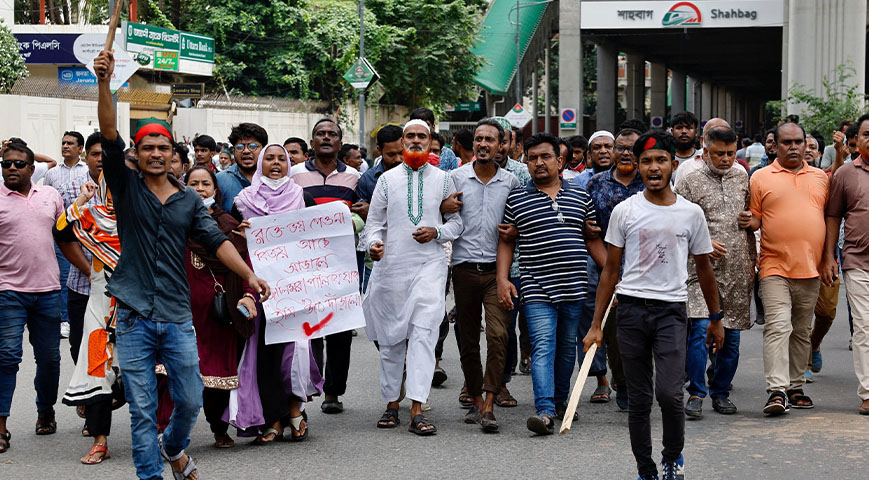Bangladeshi students are set to march to Dhaka, defying a nationwide curfew to demand Prime Minister Sheikh Hasina's resignation.
This follows deadly clashes that resulted in nearly 100 deaths. The protests, which began last month over a controversial quota system in government jobs, have escalated into a campaign against Hasina, who secured her fourth term in January amidst an opposition boycott.

At least 91 people, including 13 policemen, were killed as police used tear gas and rubber bullets to disperse tens of thousands of protesters.
This marked the deadliest day of protests in Bangladesh's recent history. In response, the government imposed a nationwide curfew, halted railway services, and closed the garment industry.
Did you read this?
Protest coordinator Asif Mahmud urged people to converge on Dhaka through social media, calling for a decisive stand. Meanwhile, the Bangladesh army has requested public compliance with the curfew, emphasizing its role in ensuring national security.
The violence has affected 39 of Bangladesh's 64 districts, with attacks on government buildings, ruling party offices, police stations, and public representatives' homes. The Bangladesh Railway suspended services indefinitely, and garment factories closed for worker safety, impacting the country's significant apparel industry.

The unrest is seen as a major challenge for Hasina's 20-year regime. Her government has faced accusations of excessive force against protesters, which it denies. To curb the protests, the government has also shut down high-speed internet services and restricted access to social media platforms like Facebook and WhatsApp.
Despite the Supreme Court's recent decision to scrap most quotas, student protests have continued, demanding justice for the killed and injured and calling for Hasina's resignation.
The army's handling of the violence is under scrutiny, with retired military officers advocating for a political resolution and troop withdrawal. Army Chief General Waker-Uz-Zaman has affirmed the army's commitment to national interests and is set to address the media on Monday.









